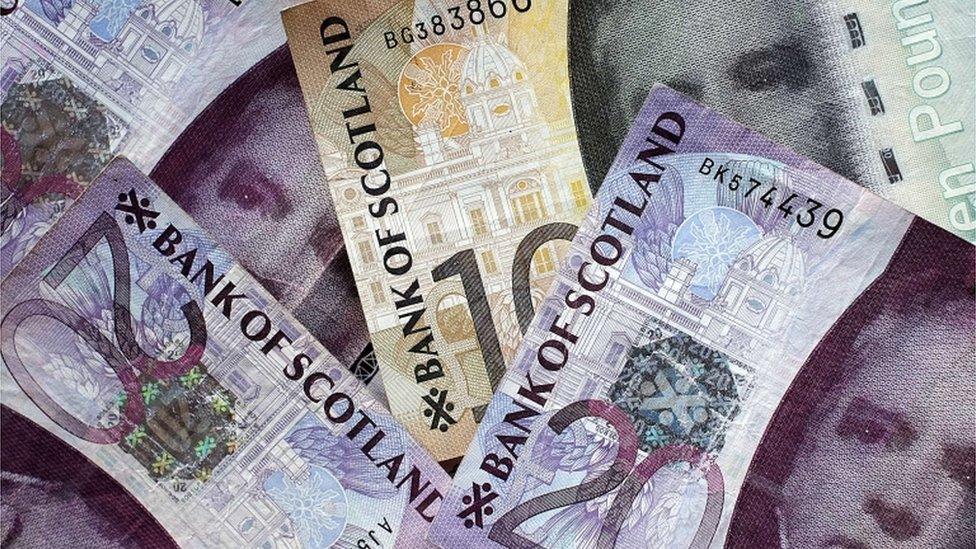Minister unveils Scottish business rates rise cap for 9,500 firms
- Published
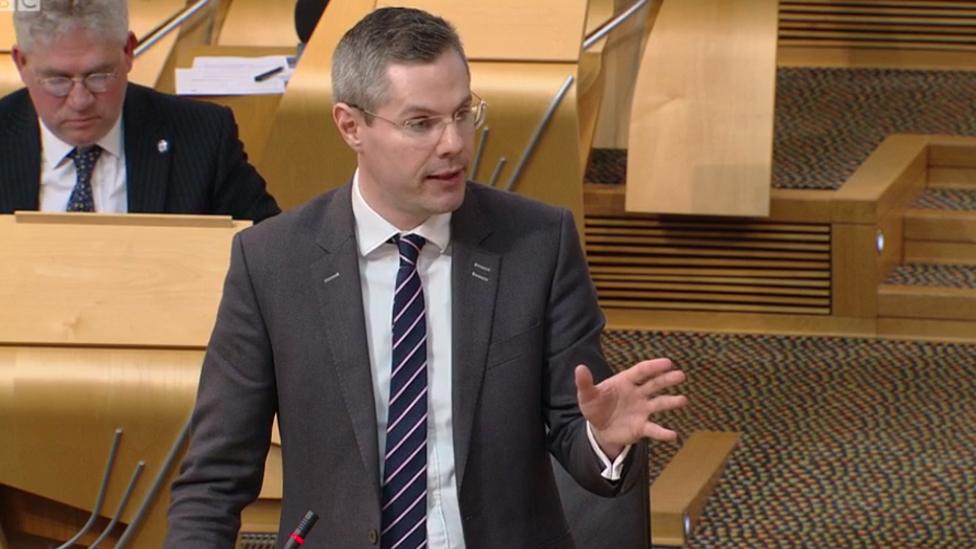
Derek Mackay said he had listened to the concerns that had been raised
Scotland's finance secretary has moved to quell concerns over rapidly rising business rates by capping increases for 8,500 firms in the hospitality sector.
The 12.5% cap on any rise will also apply to more than 1,000 office premises in Aberdeen and Aberdeenshire.
In a statement to Holyrood, Derek Mackay also outlined a package of relief for the renewables sector.
The Tories said the government had been "asleep at the wheel" over the issue.
An assessment of how much each Scottish firm will pay in non-domestic rates is currently under way, and is due to take effect from April.
The last revaluation in Scotland was carried out in 2010 - and there has been considerable disquiet from companies who will see big increases in the amount they have to pay.
Criticism has been particularly loud from the tourism industry and in the north-east, where valuations fixed in early 2015 have not taken account of the subsequent oil sector slump.
Hotels had been facing an average increase of 37% - far higher than other sectors - while office spaces in Aberdeen and Aberdeenshire were facing average rises of 17% and 15% respectively, compared to a national decrease of 10%.
There has been similar controversy over revaluations elsewhere in the UK.
Mr Mackay told MSPs that almost 8,500 hotels, pubs, restaurants, cafes and other businesses in the hospitality sector would benefit from a cap on any increase to bills of 12.5%.
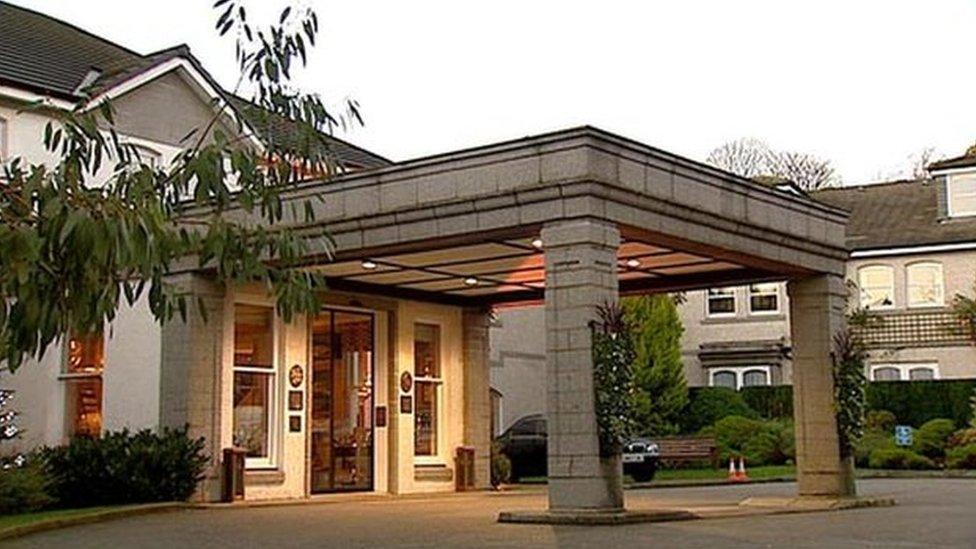
The owner of the Marcliffe hotel in Aberdeen was among those to campaign against the rates increases
He also confirmed appeals against revaluation would be free in Scotland, unlike in other parts of the UK.
And he pledged early government action on the findings of a review into business rates, which is due in July, and said he would work with local authorities to introduce a local rates relief scheme to support key sectors or localities.
The finance secretary said a package of relief for the renewables sector would include rolling forward current rates relief of up to 100% for qualifying community projects, capping rates bill increases at 12.5% for small-scale hydro schemes and a new 50% rates relief for district heating schemes.
Mr Mackay said: "Although councils retain all the revenue from business rates, and have the power to offer rate reductions, it has become clear that there are some sectors and regions where the increase in rateable values is out of kilter with the wider picture of the revaluation.
"I have listened and decided that we will act nationally to tackle the impact."
'Positively dizzy'
The announcement on business rates came as MSPs prepared to vote on Scotland's income tax package for the year ahead.
Opposition parties welcomed the business rates relief measures but questioned where Mr Mackay had found the £44m needed to fund the package - with the minister saying it would come from the non-domestic rates pool.
The Scottish Conservatives said Mr Mackay had been denying for weeks that there were problems with the business rates revaluations.
The party's finance spokesman, Murdo Fraser, claimed it was "all too typical from a government who falls asleep at the wheel and only wakes up when it crashes into a wall".
Scottish Labour's Jackie Baillie also welcomed the changes, but added that she was "positively dizzy with the speed of the u-turn" from Mr Mackay.
And Scottish Green MSP Andy Wightman, said the "last-minute package of measures" underlined the need for "proper scrutiny" of non-domestic rates, which generate almost £3bn a year for council services.
Scottish Liberal Democrat leader Willie Rennie MSP said: "Finally the Scottish government has realised the seriousness of the problems facing businesses across Scotland."

Analysis from Brian Taylor, BBC Scotland political editor
Those with a longer memory will recall that a domestic Scottish revaluation in the 1980s built steadily into a furious controversy, ushering in the Poll Tax and, eventually, the departure of Margaret Thatcher.
These issues have bite. This time around, the initial narrative from Scottish ministers was that the revaluation was not their responsibility but was run by independent assessors. Which is true.
And that businesses could appeal. Which is true. And that ministers had already acted with support measures which meant that seven out of ten firms face no increase or will benefit from cuts or will pay no rates at all. True. All true.
Alongside such truth, however, one might pose another verity or two. Folk don't like paying tax. They hate big increases. And they particularly hate any suggestion that they are being unfairly singled out.

Meanwhile the Scottish Tourism Alliance - which had been campaigning for a reversal in the proposals to increase business rates - said Mr Mackay's announcement was "hugely encouraging news".
A spokeswoman said: "We know that it will be welcomed by tourism businesses across Scotland, businesses which yesterday were facing serious financial challenges post-April and in many cases, closure and the loss of many jobs.
"Today's announcement underlines and highlights the government's support for our industry and acknowledges the importance of tourism as the main economic driver in Scotland."
But Stewart Spence, who runs the five-star Marcliffe Hotel in Aberdeen, said he would refuse to pay any increases despite the announcement that they would be capped.
Mr Spence had last week called for a boycott of the new rates after saying he was facing a 25% hike while turnover at his hotel was down 40% due to the oil and gas downturn.
After Mr Mackay's announcement, Mr Spence told BBC Scotland: "I will continue, regretfully, paying my old rates, which I am not happy about.
"I was hoping I would have to pay less. I will not be agreeing to an increase."
Ewan MacDonald-Russell, head of policy for the Scottish Retail Consortium, described Mr Mackay's announcement as "yet another sticking plaster". on
He added: "Today's measures will hopefully help some of the businesses affected by the revaluation, albeit only by adding even further complexity to an already fiendishly complicated system.
"However, it will do little to deal with the underlying problem caused by revaluations which take place too rarely to flex with the economic conditions."
'Full expert review'
Colin Borland, head of devolved nations for the Federation of Small Businesses, said: "The sensible measures announced today should provide some comfort for Scotland's vital tourism and hospitality industries."
He added: "The furore associated with this year's revaluation shows why the system is long overdue for reform.
"It's important to note that much of the help outlined today is only funded for one year.
"Therefore, a programme of modernisation must be delivered soon after the Barclay review reports."
Liz Cameron, chief executive of Scottish Chambers of Commerce, agreed the additional support, while welcome, did not get to the root of the problem.
She said: "That is why Scottish Chambers of Commerce has proposed a full expert review of the methodology of valuations in the hospitality, motor trade and energy sectors, with a view to ensuring that every business in Scotland can be confident that it is subject to a correct business-rates valuation of its premises."
Katy Dickson, senior policy officer at Scottish Land and Estates, said: "The announcement today will allow many businesses to plan more positively for the year ahead and the cap announced for hotels, cafes, restaurants and pubs comes as a huge relief to the industry.
"We are pleased the increase cap will also be applied to small scale hydro schemes.
"However, there is still much work to be done with the assessors during the six month appeal window from when the revaluation notices are delivered. "
- Published16 February 2017
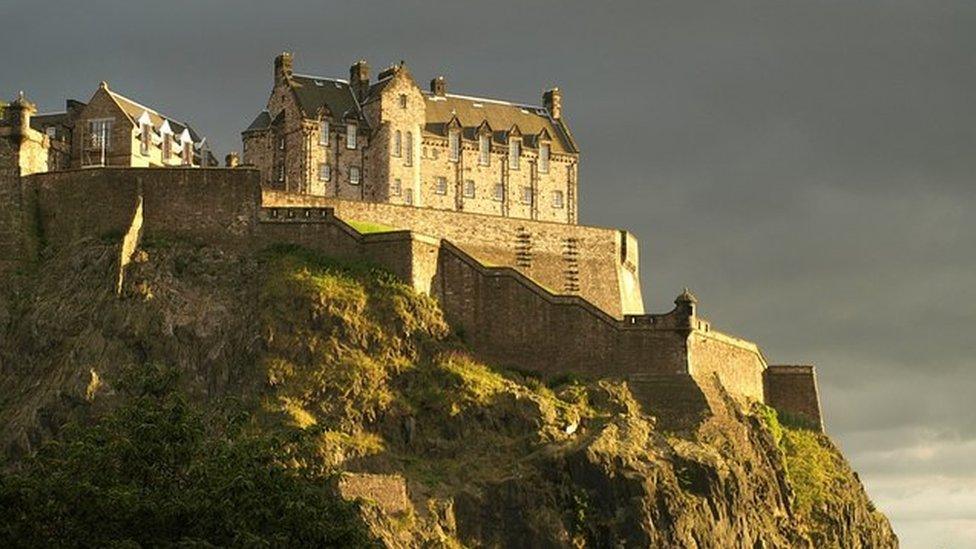
- Published16 February 2017
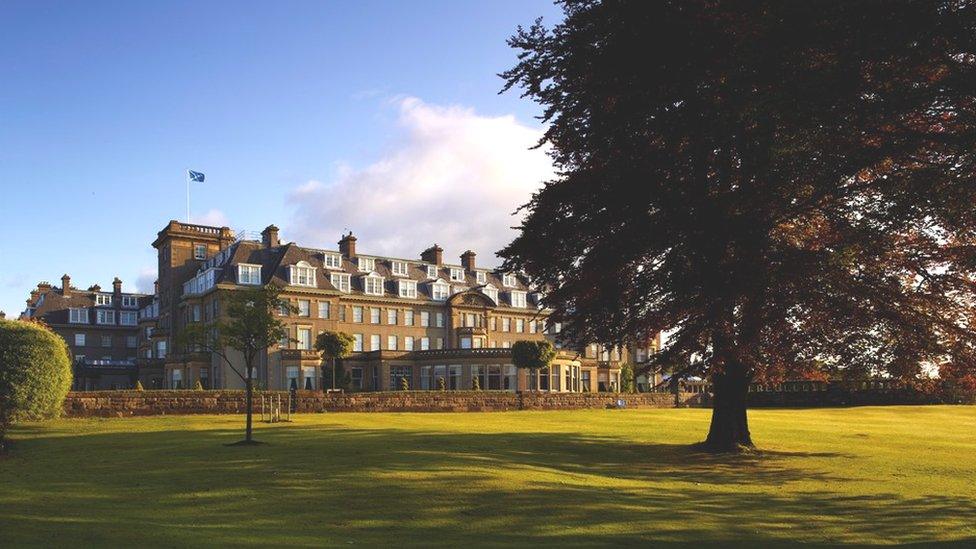
- Published16 February 2017
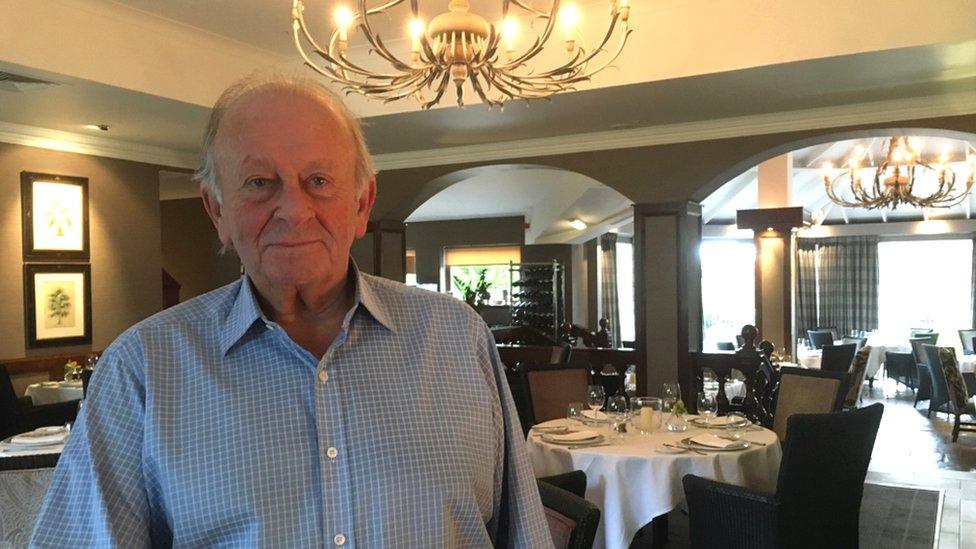
- Published12 February 2017
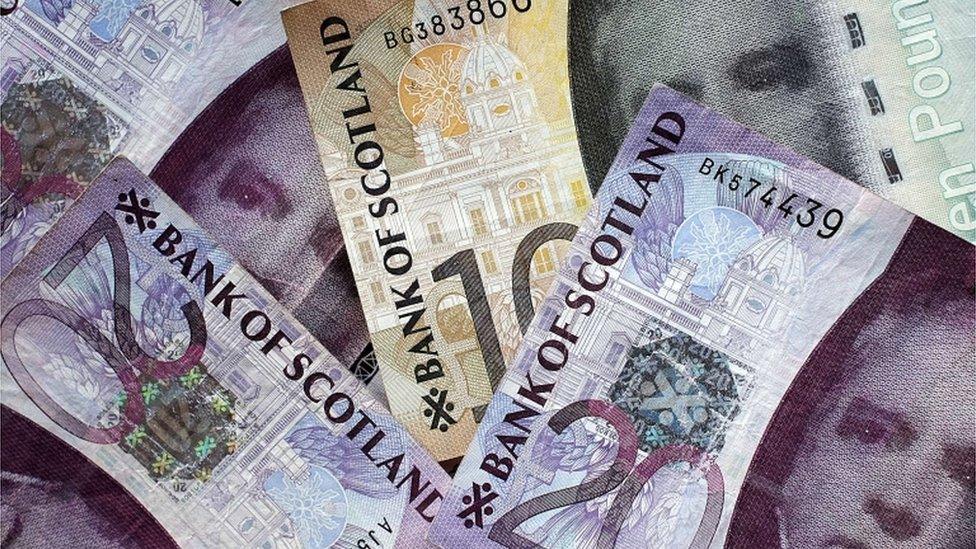
- Published18 March 2016
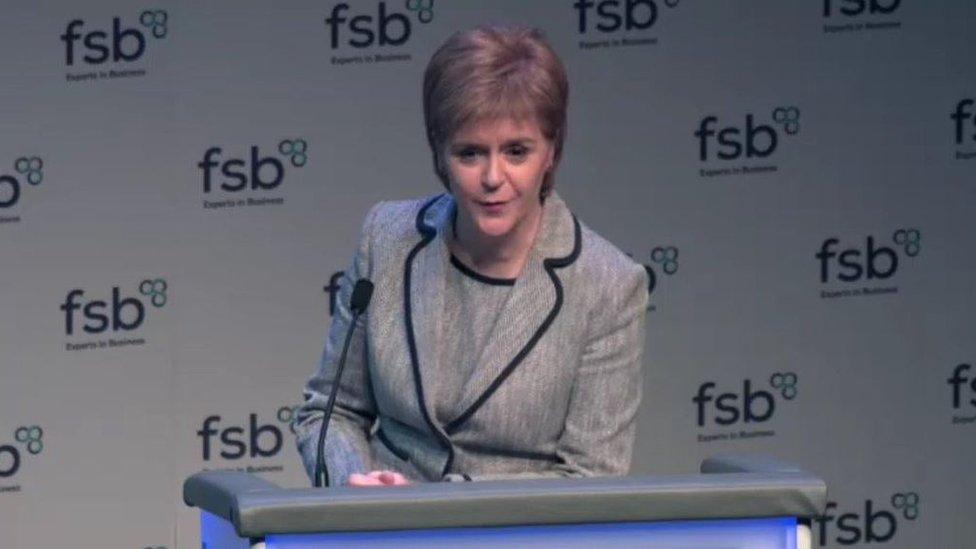
- Published26 January 2017
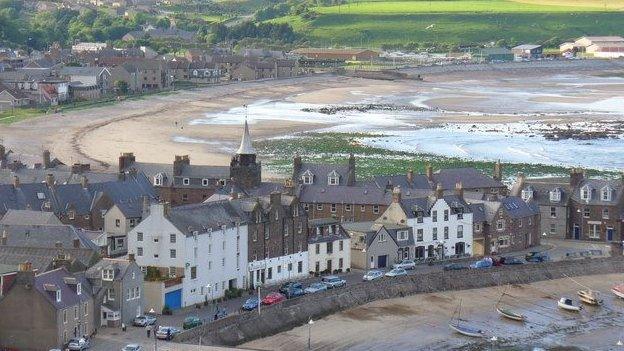
- Published5 September 2016

- Published16 December 2015
